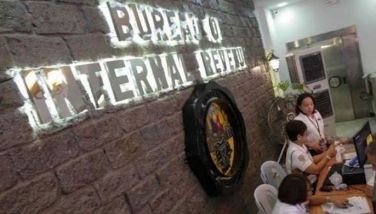Guarded optimism on 2010 outlook

Last Tuesday, I had the pleasure of acting as moderator in the annual forum of the European Chamber of Commerce (ECCP) on “The Philippine Business Environment in 2010.” The event is regularly organized at this time of the year by Henry Schumacher of the ECCP to help business planners finalize their strategies for the coming year.
At no time in recent memory is this task of planning for the next year rendered more difficult than today. First of all, we are just coming out of a crippling world financial crisis… or to be more accurate, we are hoping that recovery has started. But to be perfectly honest, no one really knows and many credible economists do not even pretend to make predictions.
There are those who say that the recession ended a quarter or two ago. But there are also those who say that whatever recovery we are seeing is very weak and may even just be illusory.
Then again, the green shoots in economic recovery seem greener in emerging markets particularly in our region. This should be good news for us except that we were largely out of the game even before the export markets collapsed so the crisis didn’t hurt us as badly as it did our neighbors. Therefore, in the ensuing recovery, we will likely not be exhibiting the exciting numbers that our export-led neighbors will start to enjoy.
Then, we were just hit by a most tragic series of typhoons. The toll on human lives is dreadful. And the continuing impact on the country is considerable. The figure of P10 billion is being bandied around as the amount needed to bring the country back to speed in terms of repair of damaged infrastructure and rehabilitation of typhoon victims.
The budget department has already indicated they do not have that kind of money. Luckily, the Treasury said there was an unexpected bonanza of some P10 billion from the sale of Malampaya banked gas.
The President said borrowing is her last resort and begging for grants is her first option. But the Trade Secretary has announced a $1 billion bond offering of the National Development Corporation that has been reprogrammed for use in typhoon rehab projects.
The respected Manuel V. Pangilinan of PLDT has been named to head a private-public sector joint rehab commission because Ate Glue realizes foreign donors are leery about entrusting money to the present government. But fears are being expressed that a lot of these funds could be wasted anyway without an intelligent plan of action.
The country’s fiscal balance was already dangerously compromised even before the typhoons came. Now it is all but certain that a significant budget deficit will be incurred and this can have some negative repercussions on the country’s international credit rating.
The only real bright light we can see for the country now is as always, our OFWs and their remittances. Our BPO industry is another reason for hope. But manufacturing, agriculture and the export sectors will most likely drag the economy as usual.
Our one other big risk factor that potential investors worry about is political risk. I need not discuss the various scenarios that analysts have brought up from failure of election to a Palace inspired coup. Computerization, instead of giving us confidence in the honesty of the exercise is giving rise to a lot of worries that we will not even have national leaders in office on June 30, 2010.
I get the feeling that even if the world economy starts its recovery in earnest next year, the excitement will pass us by. Still, there are pockets of hope in our economy and those who attend the ECCP Forum left with a rather positive prognosis for 2010 in spite of everything.
ECCP invited speakers from 6 sectors of the economy and I got the impression that they were all pretty upbeat about the economy’s prospects for next year. Off mike, some of them told me that much of their guarded optimism is anchored on a change of government next year. If the people elect a president who can command their respect because he is seen as clean of any taint of corruption, half the battle for economic recovery would have been won.
This was validated to me by some prominent corporate lawyers I had dinner with last week. They told me they have a good number of new investors on the wings, doing some spadework and eager to invest here but are waiting for a change in government. These foreign investors, I was told, are looking for a new president they can trust.
As expected, Oscar Sanez, CEO of the Business Processing Association of the Philippines (BPAP) was very positive about the prospects of his industry. He sees growth for next year even as he admitted that the growth rate had been affected by the global financial crisis. As a result, he sees a one year delay in achieving the $12 billion revenue goal for the industry.
The BPO industry was worth $1.5 billion in 2004, grew to $3.3 billion in 2006 and expects to hit $7 billion this year. Now employing 450,000 Filipinos, he sees the need to expand the pool of talent for the industry if we are to keep pace with the industry’s 20 per cent growth rate.
Sanez said they are looking at the possibility of tapping an alternative labor pool composed of housewives, retirees, non-graduates and career switchers to complement the regular pool of young college graduates. He also advocated the development of the next wave cities outside of the country’s main metro centers for new BPO locations.
Arthur Young, who chairs the Semiconductor and Electronics Industries group was also quite surprisingly upbeat. Mr. Young confidently declared the end of the recession as far as his industry is concerned. Thanks to China ’s effective stimulus program, he said, his industry saw bottom last March.
Mr. Young is seeing dramatic growth in 2010 on account of strong demand for electronic gadgets like smart cell phones and medical instruments like defibrillators from emerging markets led by China. He sees export volumes to continue climbing next year as customers restock inventories.
Month-to-month revenues, he said, is now growing. Q3 09 revenues are still smaller than comparable period in 08 but better than Q2 09. He thinks Q4 09 will be better than Q3 09.
Jose Fernando Camus, Chairman of Jose Lang Lasalle Philippines, admitted the real estate sector is problematic at this time. Commercial real estate is powered essentially by BPOs. Rentals have gone down in key commercial centers as competition from new commercial areas intensified.
But he sees OFW remittances to continue supporting residential condominium developments. He urged those who are planning to buy condo units to put money down now to take advantage of lower prevailing costs. He is very positive about the industry’s prospects as the economy recovers. The finalization of the rules for real estate investment trusts or REITS is another development he sees as contributing to the property sector’s growth.
In Tourism, Paz Alberto of the Philippine Travel Agency Association was bullish about the industry, specially with the passage of the Tourism Investments Incentives Law. But she acknowledged a lot of work still needed to spur the industry’s growth specially in the area of promotions and infrastructure. Competition from Internet sites offering cut price tickets and from the airlines themselves has also made the travel agency business more challenging than usual.
For the consumer retail sector, Paul Santos, a Vice President of the Philippine Retailers Association debunked the general impression that there is weak purchasing power at the retail level. Purchasing power is strong, he said, but consumers are very choosy. A good product or service will find a good market, he said. Buyers, he said, are price conscious.
On Agri-Industrial development, Mariz Agbon from a government owned agri company presented a number of government programs but failed to offer insights on the business. Questions were directed to him on reported agricultural plantation projects in cooperation with foreign entities but he offered no new insights or developments.
If what was said in the symposium is any indication, there are good reasons to be hopeful for our economy in 2010. But the challenges we face, specially because of the typhoon damage, remain daunting.
Classic Erap
Now that Erap is officially running in 2010, prepare for a return of Erap jokes. Here’s one from a reader.
Reporter to Erap alighting from a PAL flight: “Mr. President, what can you say about the economy?”
Erap: “I don’t know, kasi nasa first class ako.”
Boo Chanco’s e-mail address is [email protected]. This and some past columns can also be viewed at www.boochanco.com
- Latest
- Trending























